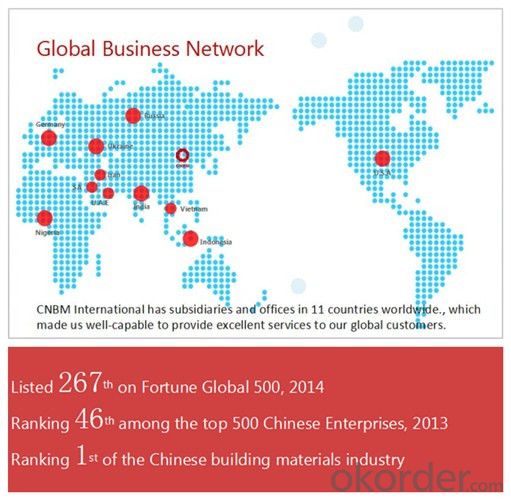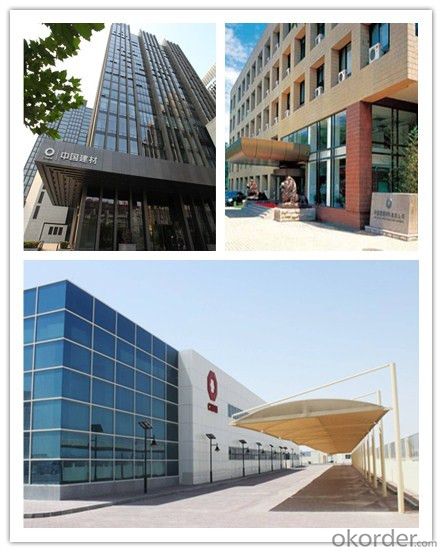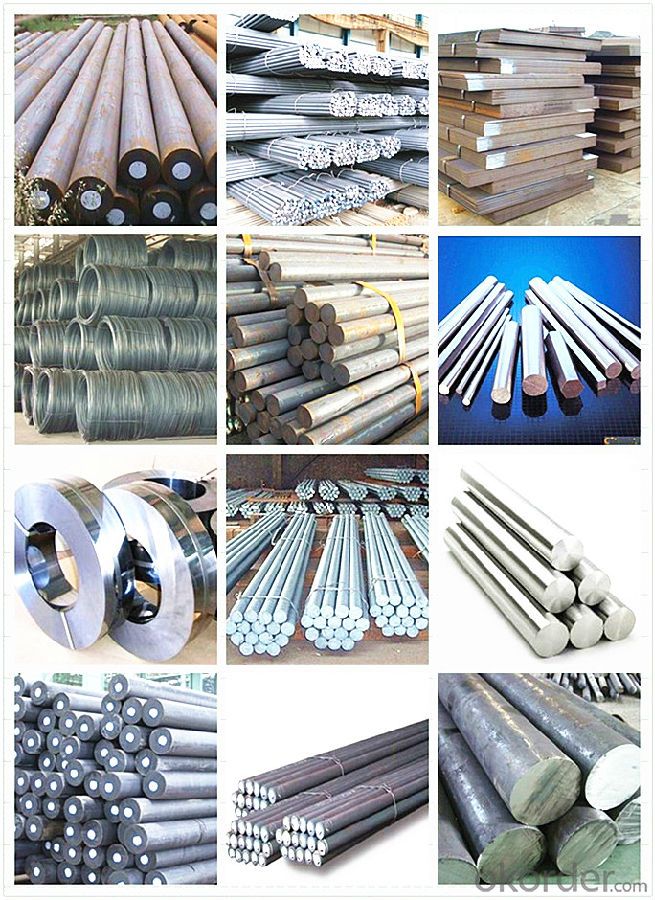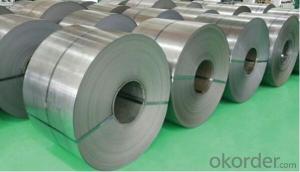Grade JIS G3141-SPCC-1B Galvanized Steel Coil
- Loading Port:
- Tianjin
- Payment Terms:
- TT OR LC
- Min Order Qty:
- 3 m.t.
- Supply Capability:
- 10000 m.t./month
OKorder Service Pledge
OKorder Financial Service
You Might Also Like
Item specifice
Grade JIS G3141-SPCC-1B Galvanized Steel Coil
Specification of Grade JIS G3141-SPCC-1B Galvanized Steel Coil
1. Galvanized Steel Coil
(1) Width: 600-1570mm
(2) Thickness: 0.13-5.0mm
(3) Grade: JIS G3302-SGCC-SGC570, SGCH (full hard-G550), SGHC-SGH540
EN10346-DX51D+Z, DX53D+Z, S250GD-S550GD
STM A653-CS-B, SS255-SS550
(4) Zinc Coating: Z40g/m2~Z500g/m2 (both side total coating thickness)
2. Galvalume Steel Coil
(1) Width: 600~1500mm
(2) Thickness: 0.15~2.30mm
(3) Grade: JIS G3321-SGLCC, SGLC400-570, (G550)
EN10346-DX51D+AZ, DX53D+AZ, S250-S550
ASTM A792M CS-B, SS255-SS550
(4) AZ Coating: AZ50~AZ185g/m2
3. Prepainted Galvanized Steel Coil (PPGI)
(1) Width: 600~1250mm
(2) Thickness: 0.19~1.50mm
(3) Grade: JIS G3312-CGCC, CGC340-570, (G550)
ASTM A755M CS-B, SS255-SS550
(4) Zinc Coating: Z40g/m2~Z500g/m2 (both side total coating thickness)
4. Prepainted Galvanized Steel Coil (PPGL)
(1) Width: 600~1250mm
(2) Thickness: 0.20~1.50mm
(3) Grade: JIS G3322-CGLCC, CGLC340-570, (G550)
ASTM A755M CS-B, SS255-SS550
(4) AZ Coating: AZ50~AZ185g/m2 (both side total coating thickness)
5. Cold Rolled Steel Coil (Soft) (for further information, pls click the product name)
(1) Width: 600~1570mm
(2) Thickness: 0.13~2.50mm
(3) Grade: JIS G3141-SPCC-SD, SPCD-SD, SPEC-SD
JIS G3135-SPFC 340/390/440
EN10130-DC01, DC03, DC04
SAE1006, SAE1008
ASTM A424-TypeⅡ
6. Cold Rolled Steel Coil (Full Hard) (for further information, pls click the product name)
(1) Width: 600~1570mm
(2) Thickness: 0.13~2.50mm
(3) Grade: JIS G3141-SPCC-1B, SPCC-1D
7. Hot Rolled Steel Coil
(1) Width: 1000~1524mm
(2) Thickness: 1.20~16.5mm, other thickness can be negotiation
(3) Grade: JIS G3101-SS400, JIS G3132-SPHT1/2/3, ASTM A36, Q195, Q235 etc.
Company Introduction of the Grade JIS G3141-SPCC-1B Galvanized Steel Coil
CNBM International Corporation is the most import and export platform of CNBM group(China National Building Material Group Corporation) ,which is a state-owned enterprise, ranked in 270th of Fortune Global 500 in 2015.
With its advantages, CNBM International are mainly concentrate on Cement, Glass, Iron and Steel, Ceramics industries and devotes herself for supplying high quality series of refractories as well as technical consultancies and logistics solution.


Packaging & Delivery of the Grade JIS G3141-SPCC-1B Galvanized Steel Coil
Packaging Detail | Sea worthy packing /as per customer's packing instruction |
Delivery Detail | 15 ~ 40 days after receiving the deposit |
Products Show:

FAQ:
Are you a trading company or manufacturer? | Manufacturer |
What’s the MOQ? | 3 metric ton |
What’s your delivery time? | 15-35 days after downpayment received |
Do you Accept OEM service? | Yes |
what’s your delivery terms? | FOB/CFR/CIF |
What's the Payment Terms? | 30% as deposit,70% before shipment by T/T |
Western Union acceptable for small amount. | |
L/C acceptable for large amount. | |
Scrow ,Paybal,Alipay are also ok | |
Why choose us? | Chose happens because of quality, then price, We can give you both. Additionally, we can also offer professional products inquiry, products knowledge train (for agents), smooth goods delivery, excellent customer solution proposals. |
What's your available port of Shipment? | Main Port, China |
What’s your featured services? | Our service formula: good quality+ good price+ good service=customer's trust
|
Where are your Market? | Covering more than 160 countries in the world |
- Q:How is high-strength alloy steel used in the production of structural components?
- High-strength alloy steel is commonly used in the production of structural components due to its exceptional strength-to-weight ratio. It provides superior tensile strength and toughness, making it suitable for supporting heavy loads and withstanding high stress and impact. This steel is often used in the construction of buildings, bridges, and other infrastructure, as well as in the manufacturing of machinery and vehicles. Its application helps enhance structural integrity, durability, and safety while minimizing the weight and material requirements of these components.
- Q:What are the common challenges in machining titanium alloys?
- The common challenges in machining titanium alloys include their high chemical reactivity, low thermal conductivity, high cutting forces, and poor chip control. Additionally, titanium alloys tend to work harden, making them prone to tool wear and requiring frequent tool changes. Moreover, their low modulus of elasticity can lead to vibration and chatter during machining operations, affecting surface quality and dimensional accuracy.
- Q:What is the role of special steel in sustainable manufacturing?
- Special steel plays a crucial role in sustainable manufacturing by offering enhanced durability, strength, and corrosion resistance, resulting in longer-lasting and more efficient products. It enables the development of lightweight yet robust components, reducing material consumption and energy consumption during production and usage. Additionally, special steel can be easily recycled, contributing to the circular economy and minimizing environmental impact.
- Q:What are the different forming techniques for special steel?
- Some of the different forming techniques for special steel include forging, rolling, extrusion, and casting.
- Q:Can special steel be used in the medical field?
- Yes, the medical field utilizes special steel. Special steel alloys, including but not limited to stainless steel, find extensive application in medical and surgical instruments, implants, and equipment. Stainless steel is selected for its remarkable resistance to corrosion, exceptional strength, and enduring durability. It is commonly employed in surgical instruments like scalpels, forceps, and needles, as well as in orthopedic implants like bone screws and plates. Moreover, special steel alloys are employed in the fabrication of medical equipment such as MRI machines and X-ray tables, where high strength and magnetic properties are imperative. In summary, special steel plays a pivotal role in the medical field owing to its distinctive characteristics and capacity to meet stringent criteria for hygiene, safety, and dependability.
- Q:What are the different methods of surface ion nitriding for special steel?
- There are several methods of surface ion nitriding that can be used for special steel. These methods include: 1. DC Plasma Nitriding: This method involves the use of a direct current (DC) plasma to ionize nitrogen gas and create a plasma atmosphere. The special steel is placed in the plasma chamber and a high voltage is applied to accelerate the ions towards the surface of the steel, resulting in nitriding. 2. RF Plasma Nitriding: RF (Radio Frequency) plasma nitriding is a similar process to DC plasma nitriding, but instead of using a direct current, a radio frequency power supply is used to generate the plasma. This method allows for better control of the nitriding process and can be used for more complex geometries. 3. Pulse Plasma Nitriding: In this method, short pulses of high voltage are applied to the steel surface, creating a plasma discharge. The pulses are repeated at regular intervals, allowing for precise control over the nitriding process. This method is often used for steels with sensitive properties that can be affected by prolonged exposure to high temperatures. 4. Plasma Assisted Nitriding: This method combines plasma nitriding with other surface treatment techniques, such as physical vapor deposition (PVD) or chemical vapor deposition (CVD). The steel is first coated with a thin layer of a reactive material, and then nitrided in a plasma atmosphere. This combination of techniques can enhance the surface properties of the special steel, such as wear resistance or corrosion resistance. 5. Glow Discharge Nitriding: This method involves placing the special steel in a chamber filled with a nitrogen-rich gas, such as ammonia. A high voltage is applied to create a glow discharge, which ionizes the gas and generates nitrogen ions that diffuse into the surface of the steel. This method is commonly used for small parts or components with complex shapes. It is important to note that the selection of the most appropriate method for surface ion nitriding of special steel depends on factors such as the desired properties, the geometry of the steel, and the specific requirements of the application.
- Q:What are the specific requirements for special steel used in the power transmission industry?
- The specific requirements for special steel used in the power transmission industry are related to its durability, strength, and resistance to various environmental factors. These requirements are crucial as power transmission equipment operates under high loads, extreme temperatures, and corrosive conditions. Here are some specific requirements for special steel in the power transmission industry: 1. High Strength: Special steel used in power transmission must possess high strength to withstand the mechanical stresses and loads imposed by the power transmission equipment. This ensures that the steel can effectively carry the weight and resist deformation or failure. 2. Hardness: Special steel needs to have sufficient hardness to resist wear and abrasion. Power transmission equipment often involves moving parts that experience constant friction and contact, so the steel must be able to withstand these forces without wearing down quickly. 3. Corrosion Resistance: The steel used in power transmission should have excellent resistance to corrosion and rusting. Power transmission equipment is frequently exposed to moisture, chemicals, and other corrosive substances, so the steel must be able to withstand these conditions without deteriorating or losing its structural integrity. 4. Heat Resistance: Power transmission equipment operates at high temperatures, especially in cases of power generation and distribution. Therefore, special steel used in this industry must possess high heat resistance to prevent deformation, loss of strength, or failure under extreme thermal conditions. 5. Electrical Conductivity: Some power transmission components require steel with good electrical conductivity to ensure efficient transmission of electricity. Steel used for conductive purposes must have low resistance to electrical flow, allowing for minimal power loss during transmission. 6. Fatigue Resistance: Special steel used in the power transmission industry should have excellent fatigue resistance properties. This means that the steel can withstand repeated cycles of stress and strain without cracking or breaking, thereby ensuring its long-term reliability and durability. 7. Dimensional Stability: The steel used in power transmission must maintain its dimensional stability over time. This ensures that the equipment maintains its intended design and functionality, even under different operating conditions. In conclusion, the specific requirements for special steel used in the power transmission industry include high strength, hardness, corrosion resistance, heat resistance, electrical conductivity, fatigue resistance, and dimensional stability. These requirements ensure that the steel can withstand the demanding operational conditions and provide reliable and efficient power transmission.
- Q:What are the factors that determine the cost of special steel?
- The factors that determine the cost of special steel include the cost of raw materials, production and manufacturing processes, market demand and supply dynamics, the complexity and uniqueness of the steel alloy, any additional treatments or coatings applied, and overall market conditions such as inflation and currency fluctuations.
- Q:What are the main advantages of using special steel in the power generation industry?
- Special steel offers several key advantages in the power generation industry. Firstly, its exceptional strength and durability make it highly resistant to the harsh operating conditions of power plants, ensuring long-lasting performance and reducing maintenance costs. Additionally, special steel's excellent heat resistance properties allow it to withstand high temperatures and pressure, crucial for power generation processes. Moreover, its corrosion resistance minimizes the risk of degradation and potential failure, enhancing overall safety and reliability. Lastly, special steel's unique composition enables it to maintain its mechanical properties at extreme temperatures, enabling efficient energy conversion and improving power plant efficiency.
- Q:How does special steel contribute to the aerospace noise reduction?
- Special steel contributes to aerospace noise reduction in several ways. Firstly, it is used in the construction of aircraft engine components such as fan blades and turbine discs. These components are subject to high temperatures and pressure, and special steel helps maintain their structural integrity, reducing vibration and noise. Secondly, special steel is also used in the manufacturing of aircraft fuselage and wings, where it helps dampen vibrations caused by aerodynamic forces, thus reducing noise. Additionally, special steel can be used in the production of sound-absorbing materials, which are used to line the interior of aircraft cabins, further reducing noise levels and improving passenger comfort. Overall, the use of special steel in various aerospace applications plays a crucial role in minimizing noise and improving the overall acoustic performance of aircraft.
1. Manufacturer Overview |
|
|---|---|
| Location | |
| Year Established | |
| Annual Output Value | |
| Main Markets | |
| Company Certifications | |
2. Manufacturer Certificates |
|
|---|---|
| a) Certification Name | |
| Range | |
| Reference | |
| Validity Period | |
3. Manufacturer Capability |
|
|---|---|
| a)Trade Capacity | |
| Nearest Port | |
| Export Percentage | |
| No.of Employees in Trade Department | |
| Language Spoken: | |
| b)Factory Information | |
| Factory Size: | |
| No. of Production Lines | |
| Contract Manufacturing | |
| Product Price Range | |
Send your message to us
Grade JIS G3141-SPCC-1B Galvanized Steel Coil
- Loading Port:
- Tianjin
- Payment Terms:
- TT OR LC
- Min Order Qty:
- 3 m.t.
- Supply Capability:
- 10000 m.t./month
OKorder Service Pledge
OKorder Financial Service
Similar products
New products
Hot products
Related keywords

































